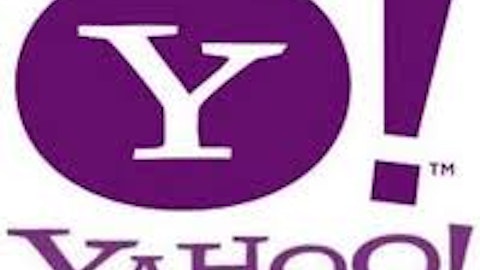
Large-cap value. Baupost added substantially to its positions in BP Plc (NYSE:BP) and Hewlett Packard (NYSE:HPQ). BP made our list of the ten most popular energy stocks among hedge funds for the first quarter and it’s easy to see why: because of poor sentiment, it trades at only eight times earnings even though the company pays a dividend yield of 4.5%; it’s easy to see why Klarman agrees with our judgment from last month that BP is an energy stock for long term investors. Hewlett-Packard has a smaller market capitalization of “only” $39 billion, but it too pays a good dividend yield for its industry- 2.7%- and yet still trades at eight times trailing earnings. HP is struggling as revenue and earnings fall, but as with BP Baupost appears to think that the stock has fallen from its fundamental value and we think they might be right.
Technology. We’ve covered HP already, which was a more than 50% increase in share count for the fund. Perhaps this move wasn’t motivated only by good valuation multiples but also by bullishness on technology, as Baupost initiated a 15.8 million share position in Oracle (NASDAQ:ORCL). The trailing P/E here is 16, which is only a moderate level in pure value terms, but Oracle recorded 8% earnings growth in its most recent quarter compared to the same period in the previous year and based on analyst estimates the forward P/E is only 10 and the five-year PEG is 1. This pick has to deliver growth in order to justify outperforming the market, and Klarman seems to agree with sell-side judgments that it will get there. Perhaps the fund is making specific statements about HP and Oracle, but it is also possible that this move is intended to build more exposure to technology.
Gold. Baupost increased its stake in Allied Nevada Gold (NYSE:ANV) from 4 million shares to 5.1 million, and added 6 million shares of NovaGold (NYSE:NG) for a total of 16 million in that stock. These represented some fairly large positions compared to the sizes of the companies- their market caps are only $2.4 billion and $1.2 billion respectively. Each has also seen its share price drop over the last year and is down over 30%. Allied Nevada is at least profitable, and is supposed to rebound in the future as its forward P/E is only 12, but NovaGold is not expected by sell-side analysts to generate positive earnings per share this year or next year. By increasing these positions Baupost appears to be committing to a gold thesis rather than evaluating these companies on historical performance as a signal of value.
Genworth. The fund took a large position of 15 million shares in Genworth Financial (NYSE:GNW). The insurance and wealth management company has dropped nearly 30% this year and has missed earnings for three quarters in a row. Perhaps Klarman thought the market had overreacted, and looking at valuation multiples it seems that there could be a value case here. Genworth trades at about a sixth of the book value of its equity and only four times forward earnings estimates. Even on a trailing basis the P/E is 7. Genworth isn’t a great company but the fund is likely snapping up the shares based in value.
Baupost’s movements here show a clear value focus. BP, HP, and Genworth are textbook value stocks with P/E ratios less than 10 and while they are troubled it’s easy to see them bouncing back. Oracle we’re not too sure about- it may be being bought on a cheap growth basis, but combined with HP it’s possible the fund is also pushing a tech thesis. And of course we’ve discussed gold as an area where Baupost appears to be taking a macro stance and even increasing its holdings of a currently unprofitable commodities-driven company by 60%. That’s probably the theme we’d least recommend to investors.





